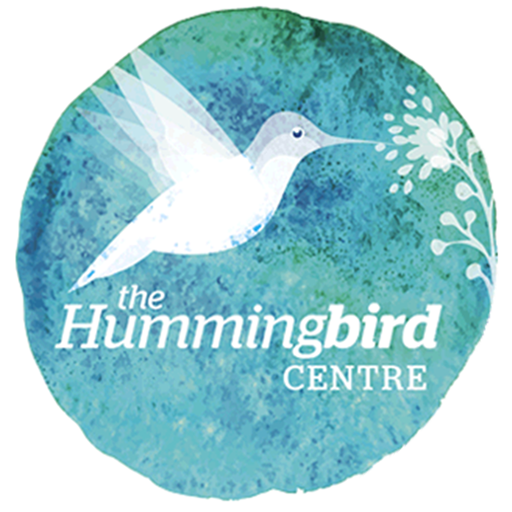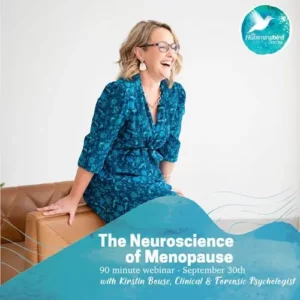At The Hummingbird Centre, we understand that menopause is more than a physical change – it’s a major life transition that can deeply influence emotions, identity, and relationships. Our menopause counselling in Newcastle, Maitland, and Lake Macquarie provides a compassionate space to explore these changes and support emotional wellbeing through every stage of this journey.
While menopause is often discussed in terms of hot flushes, night sweats, or hormonal changes, its impact on mental health can be just as significant. Feelings of irritability, anxiety, sadness, or emotional confusion are common – and you don’t have to navigate them alone.
Our team of psychologists and accredited mental health social workers are trained in psychological support for menopause, helping women understand, accept, and manage the emotional shifts that accompany this natural transition.
Understanding the Psychological Impact of Menopause
Menopause marks the end of the reproductive years, but it can also bring new beginnings – opportunities for reflection, growth, and self-understanding.
Some women describe it as feeling like “reverse puberty” – a time of adjustment, identity change, and emotional intensity. The hormonal shifts that occur can influence mood, confidence, and stress tolerance, which may affect how women feel day-to-day.
Common psychological themes during menopause include:
Identity and Purpose – Many women experience questions about self and meaning as roles and priorities shift.
Relationships and Boundaries – Changes in mood and perspective can lead to re-evaluating relationships and focusing more on personal needs.
Emotional Intensity – Mood swings, irritability, or sadness may appear without warning, reflecting natural hormonal transitions rather than personal shortcomings.
These experiences are normal responses to a complex physical and emotional transition.
The Psychological Themes of Menopause
Menopause is sometimes referred to as “reverse puberty,” and for good reason. Just as adolescents grapple with identity, relationships, and emotional regulation, women in menopause experience a similar, albeit more complex, journey. Key themes include:
- Identity and Purpose:Many women describe feeling disconnected from their pre-menopausal selves. Phrases like “I don’t recognise myself anymore” or “I’ve lost my sense of purpose” are common. These feelings often stem from shifts in roles and priorities.
- Relationships and Boundaries:Changing hormone levels can lead to increased irritability or feelings of vulnerability. Women may re-evaluate relationships, sometimes prioritising personal needs over societal expectations for the first time in decades.
- Emotional Intensity:Unlike typical depression or anxiety, menopausal mental health challenges often include heightened irritability, rage, or emotional inconsistency. These aren’t signs of failure but natural responses to significant hormonal fluctuations.
The Role of Hormones
Estrogen plays an important role in regulating emotions and stress response. As levels decline, feelings of patience or calm may become harder to access, and small stresses may feel more overwhelming.
Understanding this connection between hormones and emotions can help reduce self-blame. With the right support, many women find new ways to manage stress, care for themselves, and rebuild confidence during this time.
Embracing Change and Growth
Although menopause can feel challenging, it can also be a period of empowerment. Research suggests the brain remains highly adaptable – meaning this phase offers opportunities for self-reflection, personal growth, and emotional renewal.
At The Hummingbird Centre, our menopause counselling and emotional wellbeing sessions can help you explore:
Mood and identity changes
Sleep and stress management
Self-esteem and body image
Relationship and communication patterns
Adjusting to midlife transitions
Our goal is to help you approach this time with understanding, compassion, and practical tools for emotional balance.
Practical Ways to Support Emotional Wellbeing
While every woman’s experience of menopause is unique, the following strategies may help:
Seek Menopause-Informed Care – Consult a GP or specialist familiar with both hormonal and psychological aspects of menopause.
Discuss Hormonal Options – Ask your doctor about evidence-based treatments such as Hormone Replacement Therapy (HRT) if suitable.
Adopt Healthy Habits – Regular movement, balanced nutrition, and mindfulness can improve sleep and mood stability.
Stay Connected – Sharing experiences with friends, family, or support groups can reduce isolation and strengthen resilience.
Taking the First Step
Menopause is a natural life transition, but you don’t have to face it alone. Professional support can help you understand the changes you’re experiencing and develop strategies to improve emotional wellbeing.
Contact The Hummingbird Centre today to learn more about menopause counselling and psychological support in Newcastle, Maitland, Broadmeadow, and Lake Macquarie.
1. What is menopause counselling?
Menopause counselling provides psychological support for women experiencing emotional or mental health changes during menopause. It focuses on coping strategies, self-understanding, and wellbeing.
2. Who provides menopause support at The Hummingbird Centre?
Therapy is provided by psychologists and accredited mental health social workers with training in menopause and women’s mental health.
3. What kinds of issues can menopause counselling help with?
Counselling can support mood swings, anxiety, irritability, identity changes, sleep difficulties, and stress related to menopause.
4. Is menopause therapy confidential?
Yes. All sessions are confidential and provided in a respectful, supportive environment.
5. Can I access menopause counselling through telehealth?
Yes. Sessions are available face-to-face in Newcastle, Maitland, and Warners Bay, or online through secure telehealth appointments.
6. How many sessions will I need?
The number of sessions depends on your goals and needs. Your therapist will work with you to create a plan that feels supportive and manageable.
7. Is this counselling suitable if I’m perimenopausal or postmenopausal?
Yes. Counselling can support women at any stage – perimenopause, menopause, or post-menopause.
8. How do I make an appointment?
You can contact The Hummingbird Centre on (02) 4946 0919 or email hello@hummingbirdcentre.com.au to arrange an appointment.



